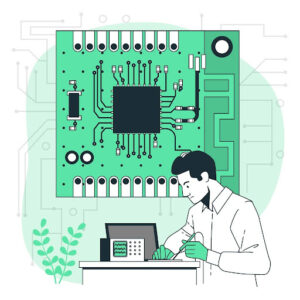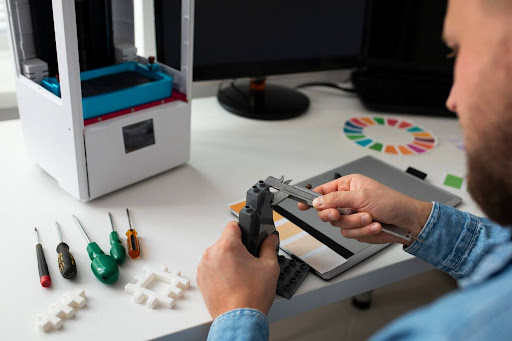In the realm of industrial automation, logic controllers play a pivotal role in managing and controlling various processes. These intelligent devices, often referred to as Programmable Logic Controllers (PLCs), have revolutionized the way industries operate by enabling efficient, reliable, and flexible automation solutions.
What is a Logic Controller?
A logic controller is an electronic device that uses programmed instructions to control machinery and processes in industrial settings. Originally developed to replace relay-based control systems, PLCs are now central to automation in manufacturing, assembly lines, and process control. They interpret input signals from sensors and provide output commands to actuators, facilitating the automation of complex tasks.

Key Features of Logic Controllers
- Programmability: One of the most significant advantages of logic controllers is their ability to be programmed to perform a wide range of tasks. Users can create custom logic sequences to match specific operational requirements, making them highly adaptable.
- Real-Time Operation: Logic controllers operate in real time, meaning they can process input signals and execute commands almost instantaneously. This capability is especially important for time-sensitive applications, such as assembly line operations.
- Reliability: Designed for industrial environments, logic controllers are built to withstand harsh conditions, including temperature variations, dust, and vibrations. Their robust design ensures minimal downtime and high availability.
- Modularity: Many logic controllers feature a modular design, allowing users to add or replace components easily. This flexibility makes it simpler to expand or modify systems as operational needs evolve.
- User-Friendly Interfaces: Modern PLCs often come with graphical programming interfaces and diagnostic tools that simplify the programming process and enhance user interaction.
Applications of Logic Controllers:
Logic controllers are versatile devices that find applications across various industries:
-
- Manufacturing: In factories, PLCs control machinery, conveyor systems, and robotic arms, streamlining production processes and improving efficiency.
- Process Control: In chemical plants and refineries, for example, logic controllers regulate parameters such as temperature, pressure, and flow rates, ensuring safe and efficient operation.
- Building Automation: PLCs are used in HVAC systems, lighting control, and security systems, optimizing energy use and enhancing occupant comfort.
- Water and Wastewater Management: Logic controllers manage pumps, valves, and treatment processes, ensuring effective water distribution and treatment.
Advantages of Using Logic Controllers
- Increased Efficiency: By automating processes, logic controllers significantly reduce the need for manual intervention, leading to faster production rates and lower labor costs.
- Enhanced Accuracy: The precision of PLCs minimizes errors in operations, ensuring consistent product quality and reducing waste.
- Flexibility: As operational needs change, logic controllers can be reprogrammed to accommodate new processes without the need for extensive hardware modifications.
- Improved Safety: By automating hazardous processes and monitoring critical parameters, logic controllers enhance workplace safety and reduce the risk of accidents.
- Data Monitoring and Analysis: PLCs can collect and analyze data in real-time, providing insights that help optimize processes and improve decision-making.

Future Trends in Logic Controllers
The landscape of logic controllers is evolving rapidly, driven by advancements in technology. Some notable trends include:
- Integration with IoT: The Industrial Internet of Things (IIoT) is enabling logic controllers to connect with other devices and systems, facilitating data sharing and enhancing automation capabilities.
- Cloud Computing: Cloud-based PLCs allow for remote monitoring and control, making it easier for operators to manage systems from anywhere in the world.
- Artificial Intelligence: Incorporating AI into logic controllers can enhance predictive maintenance, optimize processes through machine learning, and improve decision-making.
- Cybersecurity: As automation systems become more connected, the need for robust cybersecurity measures is increasingly critical to protect against potential threats.
Conclusion
Programmable Logic controllers are the backbone of modern industrial automation, providing the intelligence needed to control and optimize complex processes. Their programmability, reliability, and versatility make them indispensable across various sectors. As technology continues to advance, the capabilities of logic controllers will expand, driving innovation and efficiency in the industrial landscape. Embracing these advancements will be key for businesses aiming to remain competitive in an increasingly automated world.

